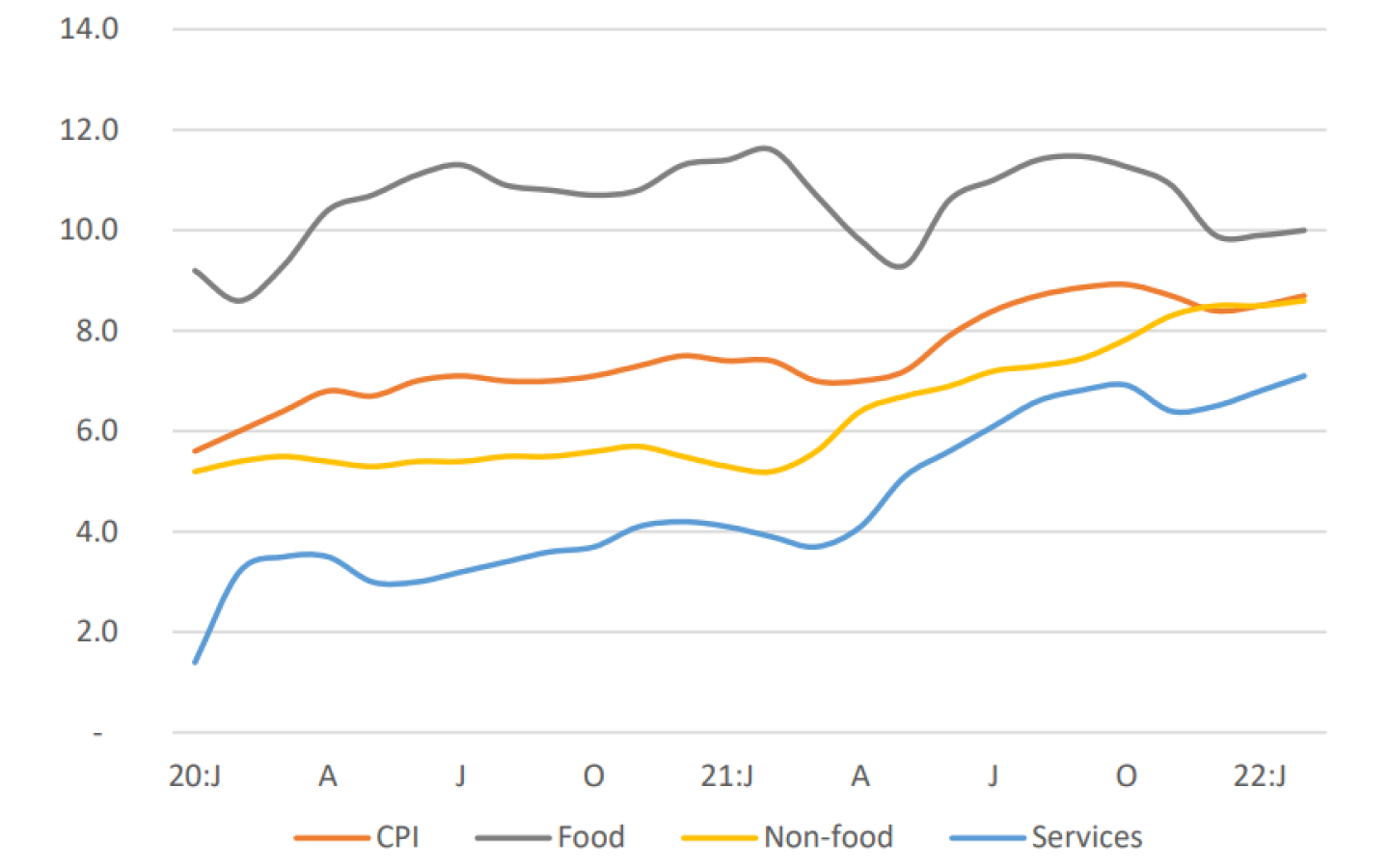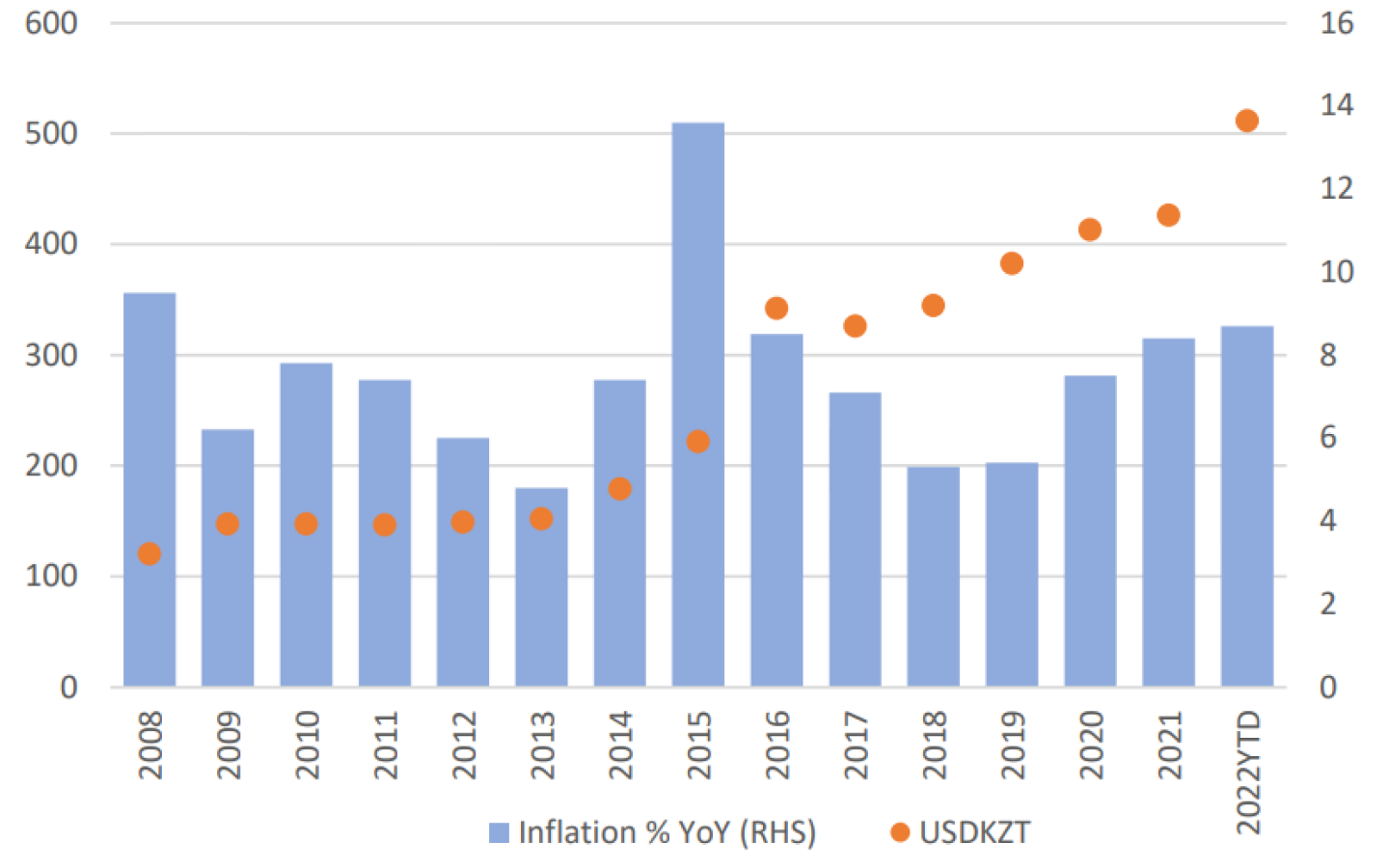Kazakhstan’s inflation accelerated to 8.7% in February from 8.5% in January, underpinned by rising prices for all inflation components (and the greatest contribution being food inflation). Food prices rose 10% in February (Jan: 9.9%), while non-food inflation increased to 8.6% (Jan: 8.5%). Paid services were 7.1% higher in February (Jan: 6.8%) where the cost of rental housing increased by 20.7%. Under the conditions of temporary regulation of prices for gasoline and diesel fuel, disinflation is observed in the fuel and lubricants market. However, the growth in prices for fuel and lubricants in annual terms is still high at 22.1%.
Kazakhstan’s Base Rate maintained at 13.5%, reflecting current geopolitical risks and the risk of accelerating domestic inflation. The National Bank added that there remains room for further tightening of monetary conditions in the event of further deterioration of the external and internal macroeconomic environment. As such, Kazakhstan’s economy is expected to have a lower growth trajectory than previous expectations due to geopolitics. Nevertheless, the pace of growth will be supported by high commodity prices, a potential rise in budget spending and improvement on the pandemic situation.
CIS’ inflation increased on pent-up demand, rising global energy, commodity and agricultural prices, supply chain disruptions. In some economies, tight labor markets have also added to inflationary pressures.



